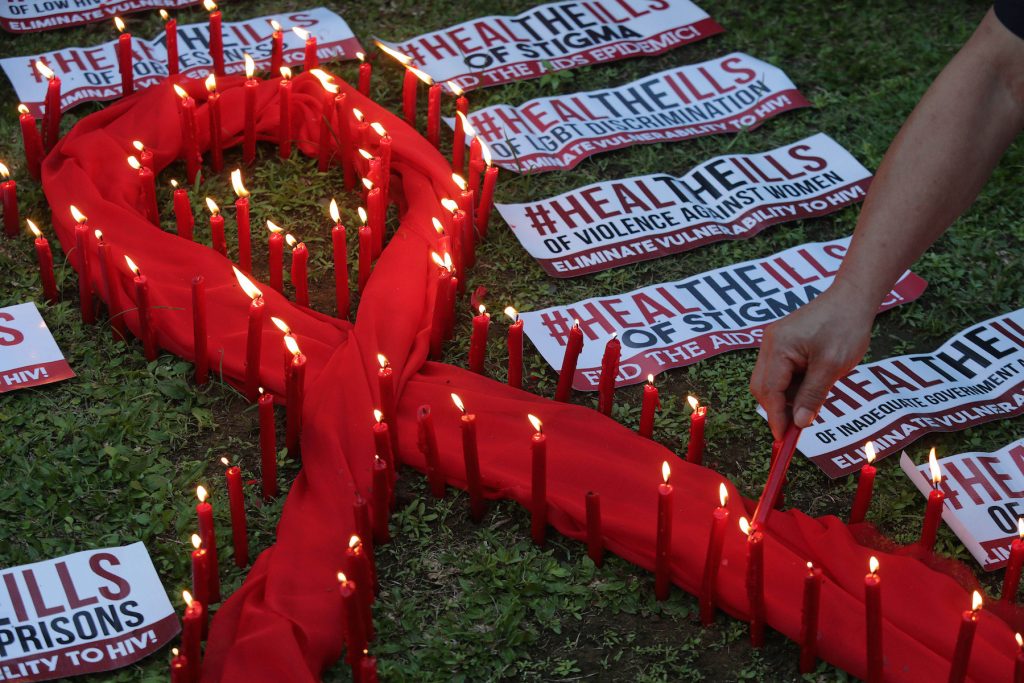
It’s World AIDS Day – here’s the cost of the trauma and the stigma
My name is Adrian Hyyrylainen-Trett. I am the first ever openly HIV+ parliamentary candidate in the 2015 General Election in Vauxhall, London. I was diagnosed over twelve years ago in June 2004, and fortunately have remained undetectable ever since due to excellent medication.
Today is World AIDS Day, a chance to highlight the fight to eradicate HIV/AIDS around the world, to remember friends, colleagues, and household names who have passed away from the illness, but also bring to people’s attention to the continued prejudice against those who suffer from it.
Much of this prejudice comes from the sheer lack of knowledge amongst the population on this issue. Here’s some information that may help bring it to light.
What is HIV/AIDS, and how many people does it affect?
HIV stands for Human Immunodeficiency Virus. If left untreated, it can lead to AIDS (Acquired Immune Deficiency Syndrome). It’s measured by what’s called a CD4 count, which is the number of cells reproduced which hold the virus.
The goal for an HIV+ person is to become ‘undetectable’ – i.e. unable to transmit the virus onto anyone else. You work this out by measuring your ‘viral load’, or how many cells per cubic millimeter are carrying the virus.
Medication available since the 2000s in the UK means that as long as you are treated within three years maximum, you’ll likely be able to live a normal, productive life.
Around 107,800 people living in the UK are HIV+. To look at my city and community, 1 in 8 gay men in London are HIV+. People with HIV come from all different backgrounds – an overwhelming proportion from the MSM community (Men Sleeping with Men), and BaME communities, but many heterosexual women and transwomen too. Around one in four are unaware that they are HIV+, meaning they’re untreated and at risk of transmitting to others.
What is the cost of HIV to the individual?
The biggest cost to the individual of being HIV positive, in my view, isn’t financial – it’s emotional. People with HIV+, and especially within the LGBT+ community, are more prone to self-harm following years of low self-esteem, loneliness and torment from social prejudice. This leads them seek refuge, usually through a vice like alcohol, drugs, gambling, sex or porn. This isn’t just about making excuses – it’s a consequence of societal upbringing and the failure of schools in particular to work past stereotypes and let children be who they are.
What about the cost to society as a whole?
A study, published by the online journal PLOS One says that the average cost of a lifetime support in terms of medication for an HIV+ person is £380,000. That money is currently shouldered by the NHS.
The trauma that HIV/AIDS can bring – both physical and mental – and the associated issues of addictions and self-harm will inevitably contribute towards a decrease in personal productivity in the workplace and wider society. Although improvements in treatment have tackled this problem to a large extent in recent years, it remains the case that individuals who would otherwise be able to contribute to our economy with their full potential are compromised by the stigma and trauma of their condition.
In my view, the least costly option to everyone involved is PrEP, a daily pill which can reduce the risk of contraction of HIV/AIDS by 90%. The cost of PrEP may seem high in the short run, but represents a fraction of what it would cost to medicate an HIV positive person for the rest of their life – not to mention the emotional cost of living with the condition.
What needs to be done?
Funding for tackling HIV/AIDS treatment has been continuously cut over recent years both nationally and at a local authority level. Changes to the management of the NHS meant that division of responsibility for funding among national and local bodies became blurred. A legal case over the funding of PrEP, a method of treating HIV/AIDS, concluded that the NHS England should be responsible for researching the prevention strategy.
The triggers which make life difficult for those living with HIV/AIDS need to be tackled at the root. Schools should provide comprehensive and inclusive sex and relationship education to all children from the age of seven onwards. They should provide spaces for people of any background to discuss HIV and sexually transmitted infections openly, in a space that allows self-confident and assertion in dealing with challenges involved.
Where do we go from here?
HIV/AIDS isn’t a siloed issue. It affects groups across society, from heterosexual women, to transwomen, to the MSM community. It costs us in financial terms, but more importantly, it affects the mental wellbeing and the productivity of millions across the country, and the globe.
Let’s hope this annual reminder of World AIDS Day will give life to the many campaigns tackling the issue, and allow us to take battle the stigma which prevents HIV+ people from living healthy, productive lives.



